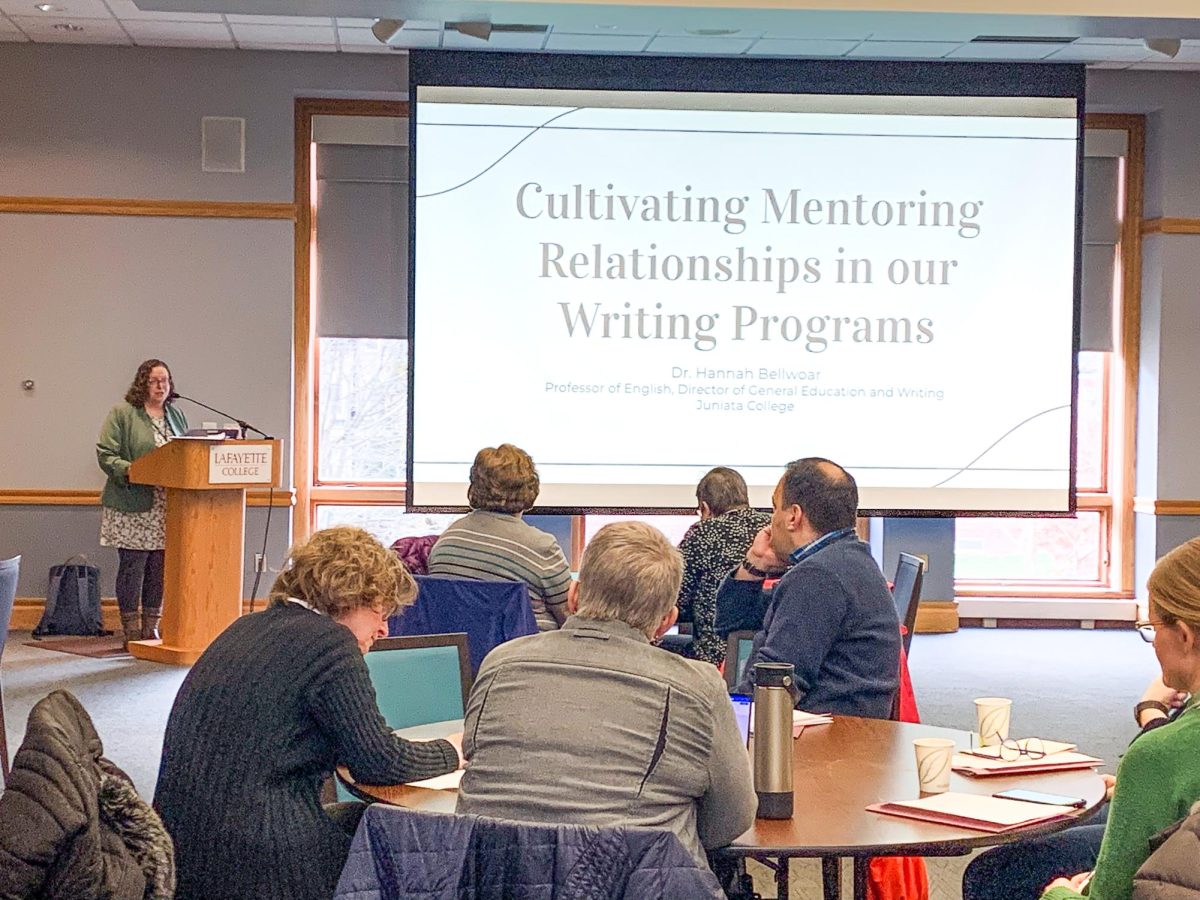Students will meet with a writing associate at least once before graduating in order to strengthen their writing – but why is good writing important?
Educators and students collaborated on ways to strengthen college writing programs when Lafayette hosted the Small Liberal Arts Colleges Writing Program Administrators Conference on Jan. 12 and 13.
Over 20 schools and 50 attendees presented and participated in discussions on the conference’s theme of working with students, which included hearing from the students themselves.
Lafayette writing associates discussed their work on an ongoing project about the history of writing on Lafayette’s campus. Under the guidance of the coordinator of the College Writing Program Emma Hetrick, students have been filing through archival and alumnus information to identify the progression of the writing program.
“We got really good feedback about that presentation that I think will take us in some new directions,” Hetrick said. “So I’m very excited for that.”
McKenna Graf ‘25, a writing associate and conference presenter working on the project, gained valuable insights about ways to bring the project’s findings to a campus-wide level.
“Bringing up this rich history that we have would turn people’s heads [to] the program and make them excited … reminding people of all the different ways that writing can intersect with all that we are doing,” Graf said.
As an addition to the project, Trebor Maitin ‘24 presented a documentary portion of the project that he and Josh Chait ‘25 originally made for their documentary class.
“The documentary both documents the history project and contributes to it,” Maitin said.
Through conversations about the documentary and the project as a whole, the writing associates compared and learned from the practices of other liberal arts colleges.
“I think we had some pretty productive discussions with our peers at other small liberal arts colleges about what a writing program could look like,” Maitin said.
In addition to student voices, the conference featured presentations from college administrators on a variety of topics, from how to expand student-led research opportunities at institutions, to how students can contribute to the writing curriculum.
Bianca Falbo, an associate professor of English and an organizer of the conference, and Ryan Van Horn, a chemical and biomolecular engineering professor, gave a presentation about writing using primary sources.
Through these presentations, Mia Powell ‘24, a writing associate and volunteer at the conference, gained a deeper understanding of the value the College Writing Program adds to Lafayette’s campus.
“Something that a lot of the guests were talking about is how important it is to have students be the ones to do this because they’re on somewhat of a similar level to the [students] who are coming to them for help,” Powell said.
Student participation and input in the conference was a top priority this year, especially for Hetrick.
“I enjoyed having the opportunity to expose Lafayette students to a professional conference,” Hetrick said. “For a lot of them, it was their first conference they’ve ever been to.”
“It was fun to talk to people in a more professional setting,” Powell said. “It was really nice to see just how many people [came] from different writing programs.”
On the other side, student attendance also provided unique perspectives to the administrators.
“I’d like to think that we offer a valuable perspective to the ‘grown-ups’ in the room, for lack of a better term, given our experience as writing associates,” Maitin said.
According to Hetrick, conferences like these are important to continue adapting college writing practices.
“It is one of the only things that’s part of the curriculum that affects every discipline,” Hetrick said. “How can we best teach and assess writing on campus to equip students to be able to write in whatever discipline that they go into?”
Disclaimer: Managing editor Trebor Maitin ’24 did not contribute writing or reporting.























































































































